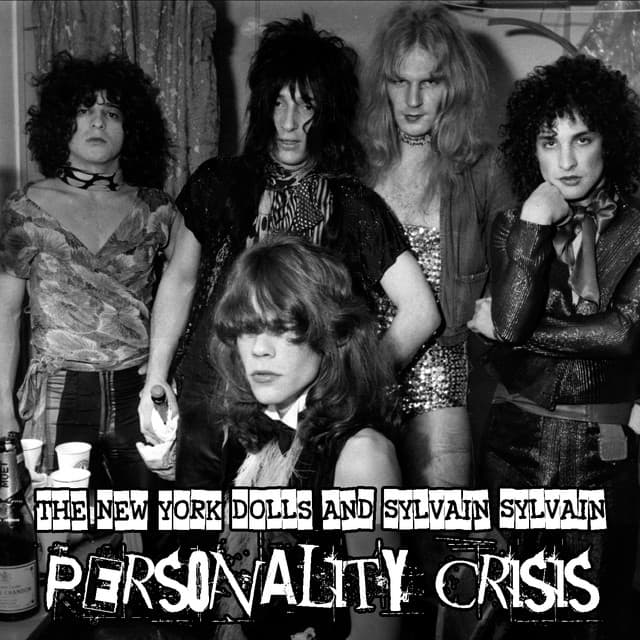
A frantic and unhinged anthem for a generation lost in a glittering, grimy world.
There are certain moments in music history that feel less like a release and more like an explosion. In 1973, as the radio waves were still bathed in the polished sheen of singer-songwriters and the last gasp of bubblegum pop, five misfits from New York City delivered a shock to the system that would forever alter the course of rock and roll. The band was the New York Dolls, and their opening salvo, the blistering, unhinged track “Personality Crisis,” was not just a song; it was a screech of defiant liberation. It was the sound of a beautiful, terrifying future—the sound of punk rock.
This song, the explosive lead track from their seminal debut album, New York Dolls, was a masterpiece of raw energy and chaotic grace. For a band that would be revered for their influence far more than their commercial success, discussing chart position feels almost beside the point. To be blunt, “Personality Crisis” didn’t trouble the pop charts in the U.S. or the U.K. It was too wild, too loud, too androgynous, and too unapologetically ugly for the mainstream of the time. This lack of chart success is, in itself, a crucial piece of the story. It cemented their status as outsiders, as a dangerous and authentic force operating in the shadows, a harbinger of the revolution that would sweep through the music world just a few years later.
The story of the New York Dolls is one of calculated rebellion. Frontman David Johansen and lead guitarist Johnny Thunders penned the track, an anthem for the disaffected youth of a decaying New York. Dressed in smeared lipstick, platform boots, and tattered velvet, they were a glorious and grotesque caricature of rock stardom. They were the bridge from the glam decadence of figures like David Bowie and T. Rex to the scrappy, nihilistic fury of the Ramones and the Sex Pistols. “Personality Crisis” was their mission statement, a three-and-a-half-minute maelstrom of swagger and desperation.
Lyrically, the song is a dizzying descent into a fractured psyche, reflecting not just one person’s turmoil but the collective angst of a generation. The frantic piano intro, bashed out with a gleeful disregard for convention, sets the stage for a narrative of identity in flux. It’s a song about feeling like a stranger in your own skin, about the schism between who you are and who you’re expected to be. Johansen’s voice, a snarling, sneering instrument, perfectly captures the lyrical anxiety, while Thunders’s blistering, ragged guitar riffs sound like a thousand shattered dreams and shattered bottles. It’s the sound of desperation on a Saturday night, of feeling both too young and too old for a world you never asked to be in.
For those of us who came of age in that era, the New York Dolls were not just a band you listened to; they were a movement you either joined or reviled. They were a necessary corrective to the bloated excesses of stadium rock. “Personality Crisis” was the defiant scream of urban America, a grimy, glamorous call to arms for every outcast and oddball. Its raw, unrefined power has only grown more influential with time, and today it sounds just as fresh, dangerous, and essential as it did the day it was unleashed on an unsuspecting world. It’s a song that reminds us that true genius doesn’t always come with a gold record; sometimes, it’s a chaotic, beautiful mess that changes everything.